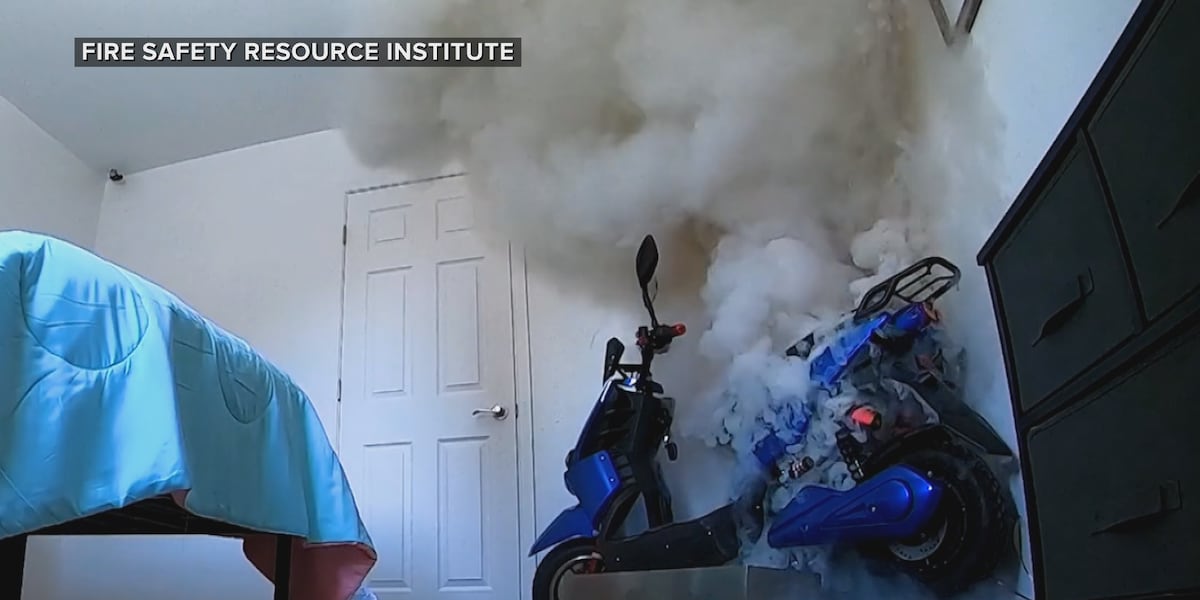Colorado
Colorado board declares $200,000-a-year cystic fibrosis drug to be affordable

Colorado’s new prescription drug review board decided in a first-in-the-nation vote that a medication costing more than $200,000 a year doesn’t qualify as “unaffordable,” based on the drug’s benefits to patients and the availability of coupons to cover out-of-pocket costs.
The Prescription Drug Affordability Board unanimously voted against declaring Trikafta — a drug to treat cystic fibrosis — unaffordable at a meeting Friday morning. If the state’s new board had determined the medication was unaffordable, it would have kicked off a process to set a maximum price that the drugmaker could charge Colorado health plans.
Six other states also have prescription drug affordability boards, but Friday’s meeting was the first time one of those boards decided whether a specific medication was unaffordable. Colorado went further than some of the other states, giving its board the power to set a maximum price that state-regulated insurance plans would pay for certain drugs.
The board’s staff reported that while Trikafta cost an average of $234,439 per patient annually, about half of patients reported they paid $50 or less out-of-pocket each month because either their insurance or assistance programs covered the rest.
Board chair Dr. Gail Mizner said that while drugmakers’ assistance programs aren’t guaranteed to continue in the future, the board’s job was to determine whether the drug was affordable for patients now. Trikafta is a “miracle drug,” she said, but the board still can consider setting a price limit in a future year if patients report they can’t access it.
“This is not the ultimate answer,” she said of Friday’s vote.
Manufacturers’ coupons take care of individual patients’ out-of-pocket costs, but raise costs for everyone paying for insurance because they allow drugmakers to keep charging high prices, said board member Dr. Sami Diab. But fixing that is beyond the scope of Colorado’s board, he said.
Cystic fibrosis is caused when a person inherits two copies of a mutated gene, causing sticky mucus to build up in the lungs and other organs. People with the disease are at higher risk from respiratory infections, and sometimes develop malnutrition because the mucus interferes with the digestive system.
The Cystic Fibrosis Foundation estimated about 700 people in Colorado have the disease.
Groups representing cystic fibrosis patients had raised alarms that setting a price limit on Trikafta could push manufacturer Vertex Pharmaceuticals to refuse to sell in Colorado. Supporters of the board’s process argued that companies were bluffing to avoid cuts to their revenue.
Trikafta works on a mutation shared by about 90% of patients with cystic fibrosis. Studies found that patients taking it had better lung function and fewer hospital admissions, and reported better quality of life. The drug has only been on the market for about four years, but some researchers project it could allow patients to have a near-normal lifespan. As of 2021, about half of people with cystic fibrosis who had died were 34 or younger, according to the Cystic Fibrosis Foundation.
Jennifer Reinhardt, a Denver woman whose 22-year-old daughter has cystic fibrosis, told the board that Trikafta gave her daughter hope and allowed her greater freedom, since she no longer needs to spend hours using a machine to break up the mucus in her chest. She said she also worries that limiting prices for rare-disease drugs could discourage companies from developing new treatments, such as Vertex’s new gene therapy for sickle cell disease.
“She was not able to plan for her future. Now she can,” Reinhardt said of her daughter. “She just wants to live.”
Rose Keller, who is in the minority of cystic fibrosis patients who have a mutation that doesn’t respond to Trikafta, told the board that while she would personally pay anything for a cure or treatment that improved her life, allowing drug companies to set their price means resources aren’t available for other priorities in society, such as education.
“If Vertex is allowed to charge whatever it wants, what is to stop whatever company comes up with my drug?” she said.
In the new year, the state’s Prescription Drug Affordability Board will consider four other drugs for possible price limits. It chose five drugs from a list of medications whose prices rose at least 10% in the last year, brand-name medications that cost at least $30,000 per year and generics that cost at least $100 per month.
The other drugs the board is evaluating are:
• Genvoya, a combination pill for HIV, with a list price of about $4,000 per month
• Enbrel, used for rheumatoid arthritis and other autoimmune diseases, with a list price of more than $6,800 per month
• Cosentyx, used for psoriatic arthritis and other autoimmune diseases, with a list price of more than $6,900 per month at typical doses
• Stelara, used for Crohn’s disease and other autoimmune conditions, with a list price of more than $12,000 a month
List prices may not reflect what health plans or individuals pay for drugs, because they don’t account for rebates.
Priya Telang, communications manager for the Colorado Consumer Health Initiative, said the board went through an exhaustive process to determine whether Trikafta was affordable, which revealed important information, such as it costs $6,000 a year to produce the drug for each patient.
Vertex’s threat to pull out marred the process, though, and terrified patients unnecessarily, she said at a news conference after the board meeting.
“It’s completely unconscionable that a company that brings in billions of dollars would threaten to withhold medication that costs $6,000 to produce,” she said.
Sign up for our weekly newsletter to get health news sent straight to your inbox.

Colorado
Body of Colorado Springs man reported missing found on Mills Glacier

Officials with the Rocky Mountain National Park say the body of a man who was reported missing from Colorado Springs was found.
The body of Lucas Macaj, 23, was found on Mills Glacier, near the base of Lamb’s Slide, according to authorities. Officials believe Macaj took a significant fall as rangers completed an on-scene investigation and recovery efforts. His body was flown to a landing zone in RMNP and was transferred to the Boulder County Coroner’s Office.
Macaj was reported missing late Sunday night after attempting to summit Longs Peak earlier in the day. He started from the Longs Peak Trailhead early Sunday, to summit Longs Peak via the Keyhole Route. Macaj was last heard from at approximately 1 p.m. Sunday, according to authorities.
He sent the text early Sunday afternoon and then stormy weather moved in. People became concerned for his safety Sunday night and the search began on Monday.
The Boulder County Coroner’s Office will release the cause of death.
Colorado
A Colorado rafting company loses court battle over minimum wage increase

GRANITE, Colo. (KKTV) -A recent federal court ruling could increase the cost of rafting on the Arkansas River. Colorado river outfitters, including Arkansas Valley Adventures, have lost their legal fight to avoid paying state-mandated minimum wages to their raft guides.
The decision, handed down on April 30 by the federal court, upheld a $15 per hour minimum wage, following an appeal to the 10th U.S. Circuit Court of Appeals last year.
The outfitters argued that the wage increase would escalate their operating costs, potentially leading to higher prices for customers and fewer available trips. The government contends that higher wages will boost worker productivity and improve service quality.
“You know, we’re going to pay you twice as much but guess what, we don’t have any work. It wouldn’t help us. We didn’t want that. We wanted an exemption. We wanted to understand our situation, and that just didn’t happen,” said Arkansas Valley Adventures owner Duke Bradford.
For those planning to go water rafting, expect some changes. Increased labor costs may lead outfitters to raise their rates, and some may reduce the number of trips offered, affecting the availability of rafting adventures.
“We work very hard to pay our staff as best we can. And I think you know, when you work closely with people you want that right. This isn’t about that, but we also don’t want to lose the ability to do overnights because the federal government, the Department of Labor, steps in and mandates a rule that would do away with that,” said Bradford.
The state’s rafting outfitters association Executive Director David Costlow says the need for Congress to legislate rather than leaving it to government agencies and affirmed their intention to continue the legal battle.
Click here to read the court’s decision.
Copyright 2024 KKTV. All rights reserved.
Colorado
Colorado city’s police department offers free safety devices for at-risk neighbors

Families caring for loved ones with memory loss know they can often wander. The Aurora Police Department says at-risk missing person cases come through almost daily. A grant received by APD has allowed them to give out free safety devices to residents caring for someone who needs special attention.
The device is called AngelSense. The GPS tracking system helps families and law enforcement find adults and children living with Alzheimer’s disease, Down syndrome, autism and other related disorders.
It’s a small, fob-style device worn by at-risk individuals that notifies loved ones of their location through GPS. When they get lost, the trackers use receivers to locate the signal and find them. It provides a detailed timeline of their day and sends proactive alerts to the caretaker’s phone.
Det. Virgil Majors with Aurora Police SVU has been delivering them to families and showing them how to use it.
“The caregiver also has the ability to send the police department their live location when they can’t retrieve their loved one themselves. It’ll cut down on resources that we use, and it’ll cut down on the time they’re away from the caregiver as well,” said Majors. “Without this device, they’re hard to track down.”
He says missing at-risk individuals are often non-verbal, or can’t remember their address, phone number or name. Personal information is registered to the device that allows police to identify them if found.
“When we get that alert, we know exactly who they are, we know what they’re diagnosed with, how to approach them, and how to best help them,” explained Majors.
Majors brought one to Elizabeth Johnson last week. Her 2-year-old son has autism.
“He’s ran away from me in the grocery store, and I couldn’t find him. That was really scary,” said Johnson. “It gives me so much more confidence in being able to locate him and knowing that he’s okay. I’m actually able to find him without screaming his name.”
While CBS Colorado was speaking with Majors about the device, APD received an alert about a missing man with Alzheimer’s disease. Richard was eventually found several miles from his home, about a four hour walk away. His daughter, Allison, was relieved he made it back safely.
“Sometimes you don’t have happy endings in cases like this,” said Allison. “It’s very scary. If he can’t communicate where he lives or what his phone number is, he can’t get in contact with us.”
APD delivered an AngelSense device to their home and showed his family how to use it.
“I’m just grateful to all the police officers and everybody that was involved and helped find my father today. I’m eternally grateful for this device,” said Allison. “He will not go that far again.”
APD still has several AngelSense devices available to give out. The grant also covers a 3 month subscription for the cellular service it requires, and they’re working to get more funding to extend that free coverage.
Caretakers interested in a device must live in Aurora and fill out an application to make sure their loved one is eligible.
For more information contact Aurora SVU at 303-739-6229.
-

 Politics1 week ago
Politics1 week agoBiden takes role as bystander on border and campus protests, surrenders the bully pulpit
-

 Politics1 week ago
Politics1 week ago'You need to stop': Gov. Noem lashes out during heated interview over book anecdote about killing dog
-

 Politics1 week ago
Politics1 week agoRFK Jr said a worm ate part of his brain and died in his head
-

 News1 week ago
News1 week agoMan, 75, confesses to killing wife in hospital because he couldn’t afford her care, court documents say
-

 World1 week ago
World1 week agoPentagon chief confirms US pause on weapons shipment to Israel
-

 Politics1 week ago
Politics1 week agoHere's what GOP rebels want from Johnson amid threats to oust him from speakership
-

 World1 week ago
World1 week agoPro-Palestine protests: How some universities reached deals with students
-

 World1 week ago
World1 week agoConvicted MEP's expense claims must be published: EU court





















